Sustainability: Preserve/Progress

MCN has held a conference every year since 1968. Skipping a year just wasn’t an option. MCN 2020 was our first-ever virtual conference. It was new for everyone, including all of us at MCN, our amazing volunteers, and everyone working to make this event happen.
MCN 2020 VIRTUAL set out to pose the question of “what sustains us?” with the conference theme Sustainability: Preserve/Progress. Together, we explored the tension between transformation and longevity. Sustainability has many facets—technological, financial, environmental, cultural, social, and personal. We recognize the increasingly fraught nature of sustainability—amplified now as we navigate global crises in health, labor, climate change, decolonization, and more. The conference provided a space for us to confront these issues, retool our skills, reconnect with one another, and work together for a more equitable digital future in museums.
We used #MCN2020 for conversation on Twitter, and created a How to MCN Virtual guide to support connecting via our suite of conference platforms, including MCN Slack.
The MCN 2020 Scholarship Program is made possible in part thanks to a grant from the Samuel H. Kress Foundation. Scholarship recipients wrote about the state of museum technology and sustainability in 2020. Included are essays, reflections, and case studies. The topics explore areas as diverse as digital literacy, citizen science, Indigenous materials and authority, film conservation, storytelling traditions, and online learning.
The Conference Program
[sched sidebar=”yes” url=”//mcn2020virtual.sched.com/”]View the MCN 2020 VIRTUAL schedule & directory.[/sched]
MCN 2020 Scholarship Committee
Jessica BrodeFrank – Scholarship Chair, MCN 2018 Scholarship Alumna
Isabel Brador – Scholarship Coordinator, MCN 2018 Scholarship Alumna
Andrea Ledesma – Scholarship Advisor, MCN 2016 Scholarship Alumna
MCN 2020 Scholars
The MCN 2020 Scholarship Program is made possible in part thanks to a grant from the Samuel H. Kress Foundation.
Scholarship recipients wrote about the state of museum technology and sustainability in 2020. Included are essays, reflections, and case studies. The topics explore areas as diverse as digital literacy, citizen science, Indigenous materials and authority, film conservation, storytelling traditions, and online learning.
MCN 2020 Scholarship Recipients
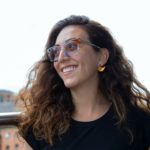
Maria Arias
I am an early career researcher interested in how museums and galleries use social media. Particularly, I am interested in the ways social media platforms and their audiences are valued and, therefore, what their relationships are with the brands of such cultural institutions. Furthermore, I am interested in sociological approaches to museology and digital humanities — to this end, I am a proponent for the use of creative methodologies and mixed-methods, as well as an advocate for the mindful and ethical use of digital media in museological research. My Twitter handle is @ariasmariap.

Emma Cantrell
Emma has worked as an educator and administrator for arts non-profits since 2010, including the Center for Art and Community Partnerships, Smith College Museum of Art, and the Henry Art Gallery. She is passionate about creating accessible museum experiences that empower the public as learners, makers, stewards, critics, and consumers of culture, as well as developing museum processes that are visitor-centered and research-informed.
Emma holds degrees from the University of Washington (MA, Museology) and Massachusetts College of Art and Design (BFA, Community Education) and is grateful to have had an education guided by brilliant artists, activists, teachers, and researchers. As an MCN 2020 Scholar, she is studying museum educators’ self-efficacy beliefs during a field-wide shift to increased virtual education due to the COVID-19 pandemic. Emma’s research is inspired by her own experiences transitioning to teaching and learning online in her current role as School & Youth Programs Manager at the Bainbridge Island Museum of Art.
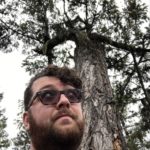
Dillon Connelly
Dillon is a passionate believer in the power of natural history museums to inspire conservation for the world around us and critical thinking about humanity’s place on earth. He holds a B.A. in Biology and a B.S. in Geology from the University of Rhode Island and an M.A. in Museology from the University of Washington. His work involves evaluation, ethics, social justice, open access, and open source technology. Before his current position, he has done work for the Seattle Aquarium, the Woodland Park Zoo, the Burke Museum of Natural History and Culture, and Roger Williams Natural History Museum and Planetarium.
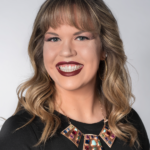
Emily Crum
Emily Crum is a passionate museum educator who strives to ensure museum spaces are innovative, accessible, and serving the public at large. Emily holds dual Master’s degrees in Arts Administration and Policy & Modern and Contemporary Art History from the School of the Art Institute of Chicago. She also holds a Bachelor’s degree with Honors in The History of Art and Architecture with an emphasis in Museum Studies from the University of California, Santa Barbara. Her Master’s thesis, “The Integration of Digital Technology in American Art Museums for Learning and Interpretation,” argues that digital technology is a tool and platform that provides a point of access for non-museum goers and can foster the creation of relevant experiences with art in museums. This body of work is one of the only of its kind to strategically analyzes the investment of modern digital tools for learning and interpretation in an informal learning environment. Emily has a wide array of experiences from holding positions in several museums, the government, and more. Emily is most passionate about exposing all audiences to art and culture through facilitating multi-sensory experiences with lasting impact.
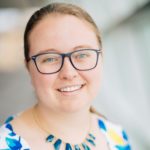
Alexis Garretson
Alexis Garretson (she/her) is a National Science Foundation Graduate Research Fellow and a current Ph.D. student at the Tufts University and Jackson Laboratory collaborative genetics training program. Her research focuses on improving the stewardship of community science and museum data while improving methods to incorporate these data into ongoing investigations into climate change, human health, and global change. Alexis is a Research Associate with the Mohonk Preserve Daniel Smiley Research Center, where she supports the digitization, stewardship, and curation of their collections, which include more than 60,000 physical items and a research library. Alexis received her B.S. in Environmental and Conservation Biology and her M.S. in Evolutionary Biology from George Mason University, where her thesis work focused on documenting changes in the phenology of maple trees over the past 200 years using community monitoring data and museum collections. Outside of research work, she enjoys hiking and submitting and identifying observations on iNaturalist.

kYmberly Keeton
kYmberly Keeton is a native Texan, a nationally published writer, an art librarian & archivist, and genealogy curator. By day, the ALA Emerging Leader and Library Journal 2020 Mover & Shaker is the African American Community Archivist & Librarian at the Austin History Center, Austin Public Library. Independently, Keeton is the Chief Artistic Officer of NOVELLA MEDIA, a creative multimedia production company and the founder of ART | library deco. Currently, the writer is pursuing a PhD in Data Science at the University of North Texas. The creative interdisciplinary mixologist can be seen on the regular with her dog, Roxy Blue. And if nothing else, kYmberly is always taking time to read books, write hooks, and design the next

Rachel Keuler
Rachel Keuler is a PhD student in the Leavitt Lab at Brigham Young University. She studies evolutionary biology through the lens of lichens, using genomics to investigate questions about hybridization and symbiosis. She spends a lot of time in the lichen herbarium at the M.L. Bean Life Science Museum, collecting and curating lichens. Rachel aims to use science communication alongside her research to make it more accessible to non-scientists, with a photo blog called Microcosmia and its YouTube channel. She is fascinated by the tiny natural worlds that surround us and wants everybody, scientist or not, to be able to see and appreciate them.

Houghton Kinsman
Houghton Kinsman works as the Adult Education Coordinator at the Crocker Art Museum in Sacramento, California. He holds a Master of Fine Art in Art from the University of Cape Town, South Africa, and has previously served as assistant to the Curator of Education at the Museum of Contemporary Art, North Miami. His writings have appeared in Art Africa, Contemporary And, Dazed and Confused, Frieze, and Artthrob.
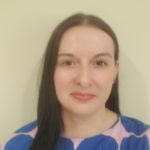
Dana Reijerkerk
Dana Reijerkerk is the Knowledge Management & Digital Assets Librarian at Stony Brook University. She earned a B.A. in American Indian Studies and an M.S.I. in Archives and Records Management from the University of Michigan. In her current role at Stony Brook University Libraries, she implements digital preservation practices and advises on long-term preservation and user experience design issues related to digital collections and open educational resources. She has years of experience working directly with federally and state-recognized Indigenous communities in the U.S., helping to further their cultural revitalization projects.
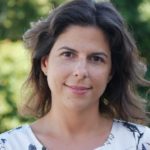
Paulina Reizi
Paulina Reizi is a film archivist at Eye Filmmuseum in Amsterdam, The Netherlands. She is a recent graduate of the MA programme in Preservation and Presentation of the Moving Image (P&P) at the University of Amsterdam. Paulina also holds a MSc in Information and Communication Technologies of Audio and Image and a BA in Journalism and Mass Communication (Aristotle University of Thessaloniki). She worked for over ten years as a communications professional in organisations such as the European Space Agency, the United Nations, and the International Film Festival of Thessaloniki.
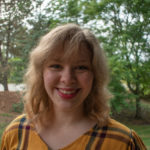
Julia Sager
Julia Sager is an art historian who believes that art history is about people’s stories. In her current role as the Education Assistant at Lansing Art Gallery and Education Center, Julia finds joy in creating opportunities for the community to experience art. In her recent past, she held the position of Peer Educator at the Michigan State University Broad Art Museum. In this role, she gained experience with object-based research and assisted in the beginning stages of the collections website improvement project. Julia’s experiences, in both her current and previous positions, sparked her curiosity regarding the use of technology in museums and the way in which it may be used to highlight the many interesting stories throughout history.
Julia earned her Bachelor of Arts from Michigan State University in Art History and Visual Culture. Presently, she is a graduate student at Michigan State University pursuing a Master of Arts in Arts Management and Museum Studies. Julia’s interests include German studies, photography, and of course, art history. In her spare time, one might find her reading a book on Van Gogh or exploring the world through photography. Julia’s values center around the strong bonds she has built with her family, her faith, and the joy she seeks in everyday life.
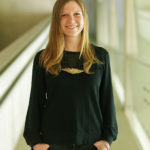
Lucia Taeubler
I have been working as Assistant Curator Engagement and Digital at The Glucksman, University College Cork since January 2019. I have been engaging with a diverse audience at the art museum through education projects, exhibition mediation, and digital media as well as observing visitor experiences. During lockdown in Ireland from March-July 2020 I worked mostly on engagement projects online and in the virtual space.
I am a graduate in Art History at University of Vienna in 2012, and I am currently studying an MSc of Digital Education at University of Edinburgh. I have been working in the field of museum education and digital story telling since 2013, and as Head of Museum Education and Visitor Experience, at Kunstmeile Krems from 2015. I received a grant at Victoria & Albert Museum for Creating Innovative Learning Programmes in 2016. In 2018 I contributed to the ICOM CECA Austria publication From the inside cultural mediation in Austria – Definition, tasks and working conditions in the field.